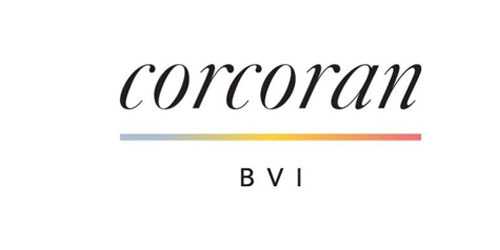Imagine…
LIFE IN THE BRITISH VIRGIN ISLANDS
The British Virgin Islands (BVI) are a British Overseas Territory in the Caribbean to the east of Puerto Rico and the U.S. Virgin Islands. The islands are geographically part of the Virgin Islands archipelago and consist of 60 islands, 19 of which are inhabited. At a little over 55 square kilometers, Tortola is the largest island among the chain. It is also home to Terrance B. Lettsome International Airport (EIS), also known as Beef Island. Virgin Gorda is the second largest island, followed by Anegada and then Jost Van Dyke.
LANGUAGE ENGLISH
CURRENCY US DOLLARS
POPULATION 30,400
SUMMER 75F/24C - 89F/32C
WINTER 70F/21C - 75F/24C
HISTORY
It is generally thought that the Virgin Islands were first settled by the Arawak from South America around 100 BC. In 1493, Christopher Columbus discovered the archipelago in his second voyage to America and gave the islands their current name. A notorious haunt for pirates, the British introduced sugarcane to the islands and large numbers of slaves were forcibly brought from Africa to work the plantations. The islands became autonomous in 1967 and have, since then, through tourism and financial services, become one of the wealthiest areas in the Caribbean.
ECONOMY
The twin pillars of the economy of the British Virgin Islands are Financial Services and Tourism. The tourism industry accounts for 45% of the national income, is notorious for its sailing culture and provides jobs and trade to the local population. The financial sector is the greater source of revenue for the Government by generating licenses for offshore companies and related services.
Over 45% of the world’s offshore companies were formed in the BVI and are regulated by the independent Financial Services Commission.
DEMOGRAPHICS
Predominately African (75%), the British Virgin Islands is home to Hispanics (5%), Europeans & Caucasians (5%) and a multitude of other ethnic groups originating in Guyana, St. Vincent and the Grenadines, Jamaica and the Dominican Republic.

Purchasing Real Estate in the BVI
NON-BELONGER LANDHOLDER LICENSES
Individuals who are not residents of the British Virgin Islands must obtain a Non-Belonger Land Holder’s License before purchasing property. Those who intend to apply for a license must enter into an agreement for sale with the land owner. Applicants must submit a completed application form together with several supporting documents. Our company is here to guide you through this process by completing the application in-house. A completed application is then submitted to the Ministry of Natural Resources and Labour. The Ministry processes the application and subsequently submits it to Cabinet for determination.
TAXES
Taxes in the BVI are set at a reasonable level and are comparatively easy to understand. Certain limited transactions in the BVI are still subject to stamp duty. The main application of the stamp duty legislation relates to transfers of real estate, or transfers of shares in companies which own real estate.
As with stamp duty, land tax rates are higher for Non-Belongers than for Belongers. An annual Property Tax is payable to the Government comprising Land Tax. Land Tax is levied at the rate of $150 for the first half an acre to one acre and $50 for any additional acreage thereafter and House Tax, levied at the rate of 1.5% of the assessed annual rental value.
WORK PERMITS & TRADE LICENSES
A Work Permit is required by any Non-Belonger wishing to engage in employment in the BVI. Permits are granted where the applicant can demonstrate that the position cannot be filled from the local labor force.
A Trade License is required to operate a business in the BVI. A work permit will also be required in conjunction with the Trade License if the owner of the business also works in the business. The Department of Labour and the Department of Trade and Consumer Affairs can respectively provide more information.
BUILDING & CONSTRUCTION
There is a three year commitment to develop unimproved land. If the property has already been improved, there may be no further requirement to improve it. Several banks in the BVI offer retail banking services to overseas purchasers. Typical rates are 5 – 5.5% for a 15 year term. Mortgage finance will usually be available to overseas investors subject to status. Construction finance may also be available for new construction.
